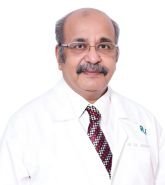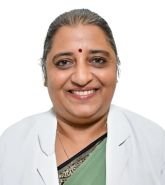Best Colon Cancer Doctors in India
The first and foremost critical step in holistic colon cancer treatment is to find the right doctor. Once you have the best medical expert guiding you and treating you through your colon cancer treatment journey, you’re on the path of successful recovery. With advancements in medical technology and cancer care, India has become home to world-class colon cancer treatment. The country offers high-tech medical support, experienced oncologists, and comprehensive cancer care. Whether a patient needs diagnostic assistance, chemotherapy, radiation, immunotherapy, or surgical assistance, the best doctors are available in India to support their healing journey.
For effective colon cancer treatment, an interdisciplinary team of expert doctors is essential, including surgical oncologists, medical oncologists, radiation oncologists, gastroenterologists, and pathologists, each playing a crucial role in diagnosis, treatment, and management. In India, some of the best colon cancer specialists work together to provide comprehensive care, ensuring personalised and advanced treatment options for patients. We have compiled a list of the best colon cancer doctors in India.
List of Best Doctor for Colon Cancer in India

Dr. (Col) V.P. Singh

Dr. Kapil Kumar

Dr. Vinod Raina

Dr. Manish Singhal

Dr. Sapna Nangia

Dr. Ganesh K Jadhav

Dr. S. Jayalakshmi
How to Find the Best Doctor for Colon Cancer?
- Asking for recommendations is the first step. The general physician or gastro you have been consulting to could be your source for providing you a list of doctors. You can search online and cross-verify. You can refer to Cancer Rounds for all your cancer-related queries to get satisfactory answers.
- Always verify the credentials of the doctors that you have shortlisted. Always choose doctors who are certified by the medical board in gastrointestinal cancers (for radiation, therapies, and surgeries, etc.)
- Consider how many years of experience the expert oncologist has and what hospital credentials they have.
- Read reviews, focus on consultation experience, and always take second opinions.
The Right Approach to Consult a Doctor for Colon Cancer Treatment
It is recommended to read about the expertise, years of experience, and other credentials of the doctor you’re meeting. This sets the tone of the discussion right in your mind. Keep in mind the following key points to ensure you make the right decision in your healing journey:
- Note down the questions: It is practically impossible to keep all the important questions in mind, especially during such a stressful time. The best approach is to make notes of all the key questions.
- Prepare a folder of your medical reports/history: The doctors would want to take a look at your medical history and to make sure they get all the information without any hassle, so it is important to prepare an organized folder.
- Be honest in sharing your symptoms/doubts: Do not hold back information or symptoms due to shame or lack of confidence. Share every minute detail to ensure quality consultation.
- Be open to understanding and receive the information doctors have to offer: Doctors might have to tell you some challenging and uncomfortable-to-hear information. The correct approach is to be very open and receptive. Understand that it is for your own good and the improvement of your health.
- Take your support person/family member with you: The consultations for colon cancer could be very tiring and overwhelming. It is recommended to go with the people you trust or feel comfortable with.
- Ask questions and seek clarification: Your time with the doctor is very important and helpful in your healing journey. The best approach is to ask as many relevant questions as possible and clear your doubts.
- Take notes in detail: It may appear very fresh and easy to remember when you are listening to the medical care experts, but later, it becomes nearly impossible to retain all the information. Therefore, taking notes is the best approach.
- Ask about available colon cancer treatment options: Ask about all the treatment methods available for the given colon cancer stage and condition. The oncologists may suggest a combination of treatments for effective results. Asking about the same in detail will help you feel more prepared and ready.
- Enquire about hospitalization and clinical care: Ask if your treatment requires hospitalization and for how many days. What type of clinical care to expect and how to be prepared for it.
- Ask about post-treatment care and hospital feeling: If you have doubts about how it feels to be in the hospital during the treatment, ask about it from your doctor during the consultation.
- Trust your gut feeling: After asking all your questions and paying attention, listen to what your intuition and heart say about the doctor and finalize accordingly.
Key Questions to Ask Your Colon Cancer Specialist
Your meeting with the colon cancer specialist is very important and a decisive point in your healing journey. You must ask all the key questions to get answers and be satisfied with the next steps. Here are the main questions a patient should ask their colon cancer doctor during the consultation:
Diagnosis-related questions:
- What stage is the patient’s colon cancer?
- What to expect at the given stage of the ailment?
- What are the advanced diagnostic options one could opt for to know further suitable treatment options?
- Are there any genetic or biomarker tests required for further diagnosis?
Treatment-related questions:
- Based on the current condition of the colon cancer patient and stage of the ailment, what are the key treatments available?
- What are the key benefits of each treatment type?
- What are the major risks involved with each type of treatment?
- What would be the best suitable treatment type – Surgery, Chemotherapy, Radiation Therapy, Immunotherapy, or a combination of any two or more?
- What are the chances of the ailment curing with the help of the suggested treatments?
- Are there any minimally invasive treatment options available?
- What are the advanced treatments/trial options available, and what are the challenges associated with them?
Side-effects and impact on lifestyle, post-treatment:
- What are the major side effects available with each type of treatment suggested by the doctor?
- How does a particular treatment affect the overall lifestyle of the patient (for example, patients can ask their key doubts such as how does chemo affect hair/skin etc)?
- How would the treatment affect the patient’s ability to do day-to-day activities?
About the medical team involved in treatment:
- Who would be part of my medical treatment team?
- How can I get in touch with my medical team in between appointments?
- How many colon cancer cases have the medical specialists involved in my treatment have treated?
Family history-related questions:
- Is there a need for the patient to undergo any specific genetic testing?
- If I am diagnosed with colon cancer, does it indicate any impact on the health of my family members?
- Should my family members also get screened for colon cancer or any other health screening for preventive measures?
Post-treatment care:
- What are the risks of the ailment recurring, and how can the same be avoided?
- At what interval should the treated patient get their tests and follow-up checkups done?
- What signs and symptoms (suggesting reocurrence) should the healed patient be vigilant of?
- What are the lifestyle changes (such as diet, exercise, sleep pattern, etc) the healed patient should make for a healthy and balanced life ahead?
Supportive questions regarding treatment:
- How should the patient prepare for the treatment mentally and physically?
- What type of support is offered to the patient, such as counselors, nurses, nutritionists, etc?
- What is the procedure to get more information on financial aid and ask follow-up questions from experts?
Health Conditions Treated by Colon Cancer Specialists
Colon cancer experts, who have different designations based on the areas they operate in – colorectal surgeons, oncologists, or gastroenterologists – work with a wide range of colon conditions. Here are the key areas they widely take care of:
- Precancerous Conditions in the colon area
- Colon Cancer
- Rectal Cancer
- Anal Cancer
- Metastatic Colorectal Cancer
- Bowel inflammatory disease
- Benign Colorectal Conditions
- Gastrointestinal Symptoms that require further investigation
- Post cancer treatment care
FAQs
Q. Who are the most experienced and leading colon cancer doctors in India?
The leading colon cancer doctors in India include top surgical oncologists, gastroenterologists, and medical oncologists, like Dr. Ajay Kumar, Dr. Deepak Govil, Dr. Vinod Raina, and Dr. Manish Singhal, who specialize in diagnosing and treating colon cancer with advanced techniques and a multidisciplinary approach.
Q. How can I choose the right colon cancer specialist in India?
To find the right doctor, look for among the top colon cancer doctors in India who have extensive experience in colon surgery, access to advanced diagnostic tools, and are part of a hospital with a dedicated oncology team.
Q. Are the leading colon cancer doctors in India skilled in minimally invasive surgery?
Yes, many of the top colon cancer doctors in India perform laparoscopic and robotic-assisted colorectal surgeries, which result in faster recovery, minimal pain, and lower complication rates.
Q. What type of treatments do the leading colon cancer doctors in India offer?
The leading colon cancer doctors in India provide comprehensive treatment options including colonoscopy, surgical resection, chemotherapy, radiation therapy, targeted therapy, and palliative care for advanced cases.
Q. Do the leading colon cancer doctors in India treat both early and late-stage colon cancer?
Absolutely. The India’s best colon cancer doctors are well-versed in managing all stages of colon cancer — from polyp removal in early-stage cases to complex surgeries and systemic therapies for advanced stages.
Q. Where can I consult the leading colon cancer doctors in India?
You can find the leading colon cancer doctors in India at top cancer centers and multispecialty hospitals in cities like Delhi, Mumbai, Chennai, Bangalore, and Hyderabad, including AIIMS, Tata Memorial, Medanta, Apollo, and Fortis.
You May Be Also Interested In









